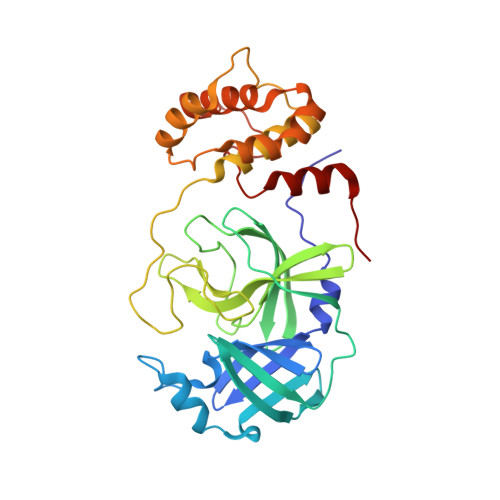Repurposing Halicin as a potent covalent inhibitor for the SARS-CoV-2 main protease.
Yang, K.S., Alex Kuo, S.T., Blankenship, L.R., Geng, Z.Z., Li, S.G., Russell, D.H., Yan, X., Xu, S., Liu, W.R.(2022) Curr Res Chem Biol 2: 100025-100025
- PubMed: 35815070
- DOI: https://doi.org/10.1016/j.crchbi.2022.100025
- Primary Citation of Related Structures:
7TUU - PubMed Abstract:
The rapid spread of COVID-19 has caused a worldwide public health crisis. For prompt and effective development of antivirals for SARS-CoV-2, the pathogen of COVID-19, drug repurposing has been broadly conducted by targeting the main protease (M Pro ), a key enzyme responsible for the replication of virus inside the host. In this study, we evaluate the inhibition potency of a nitrothiazole-containing drug, halicin, and reveal its reaction and interaction mechanism with M Pro . The in vitro potency test shows that halicin inhibits the activity of M Pro an IC 50 of 181.7 nM. Native mass spectrometry and X-ray crystallography studies clearly indicate that the nitrothiazole fragment of halicin covalently binds to the catalytic cysteine C145 of M Pro . Interaction and conformational changes inside the active site of M Pro suggest a favorable nucleophilic aromatic substitution reaction mechanism between M Pro C145 and halicin, explaining the high inhibition potency of halicin towards M Pro .
- Texas A&M Drug Discovery Laboratory, Department of Chemistry, Texas A&M University, College Station, TX, 77843, USA.
Organizational Affiliation:

















